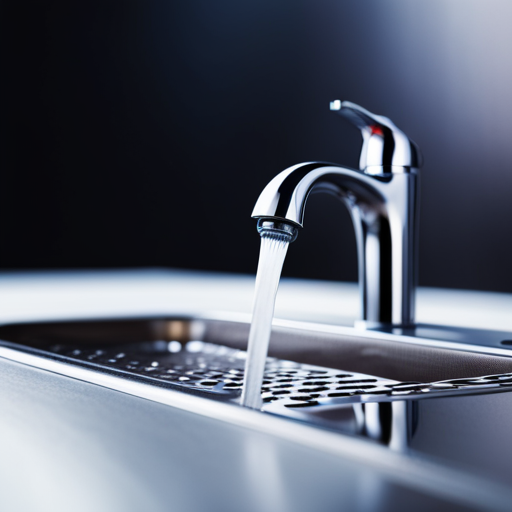Are you tired of dealing with hard water stains on your stainless steel appliances? It can be frustrating to see those unsightly marks on your once-shiny surfaces. But don’t worry, there are several solutions available to restore their shine and prevent future buildup.
In this article, we’ll explore the top tips for removing hard water stains on stainless steel. First, it’s important to understand what causes these stains. The buildup of minerals like calcium and magnesium in hard water can cause unpleasant consequences for your body, home, and appliances.
Not only do these stains look unsightly, but they can also lead to damage and corrosion over time. But the good news is, there are several preventative measures and treatment options available to help you say goodbye to hard water stains for good. So, let’s dive in and discover how to keep your stainless steel looking its best.
Key Takeaways
– Hard water stains on stainless steel appliances can cause damage and corrosion over time.
– Water-softening systems, such as salt-based and salt-free systems, can prevent and treat mineral buildup.
– DIY cleaning solutions like white vinegar, baking soda, and commercial cleaners can remove hard water stains on stainless steel, but should be tested on a small area first.
– Investing in a water-softening system can extend the lifespan of pipes and appliances, protecting them from the harmful effects of hard water.
Causes of Stains
You already know that hard water stains on stainless steel are caused by a buildup of minerals, mainly calcium and magnesium, but let’s take a closer look at the causes of these stains.
When hard water evaporates, it leaves behind mineral deposits, which can accumulate over time and create unsightly stains on your stainless steel surfaces. These stains are not only unattractive but can also be difficult to remove.
Mineral buildup can occur on any stainless steel surface that comes into contact with hard water, including sinks, faucets, and appliances. The effects on appearance can range from a slight discoloration to a dark, stubborn stain.
If left untreated, these stains can become permanent and detract from the overall appearance of your home.
Prevention and Treatment
To prevent and treat mineral buildup, consider investing in a water-softening system. These systems work by removing excess minerals from the water, preventing the buildup of hard water stains on stainless steel and other surfaces. There are two main types of water softeners: salt-based and salt-free.
Salt-based systems use a process called ion exchange to remove minerals from the water. These systems require regular maintenance, including the addition of salt to the system. Salt-free systems use a process called template-assisted crystallization to convert minerals into crystals that are unable to attach to surfaces. These systems do not require salt, but they do require filter replacement.
Here is a table comparing different water softener options:
| Water Softener Type | Pros | Cons |
|---|---|---|
| Salt-Based | Effective at removing minerals | Requires regular maintenance and addition of salt |
| Salt-Free | No salt required | Requires filter replacement |
| Magnetic | No maintenance required | May not be effective for all water types |
In addition to investing in a water-softening system, there are also DIY cleaning solutions that can help remove hard water stains from stainless steel. White vinegar, isopropyl alcohol, baking soda, and commercial cleaners can all be effective at removing stains. However, it is important to test these solutions on a small, inconspicuous area first to avoid damaging the stainless steel. By taking preventative measures and using effective cleaning solutions, you can say goodbye to hard water stains on your stainless steel surfaces.
Impact on Home and Appliances
Investing in a water-softening system can extend the lifespan of your pipes and appliances. It does this by reducing the buildup of mineral deposits. Hard water can cause serious damage to your home and appliances, leading to costly repairs and replacements.
The minerals in hard water can accumulate in your pipes, causing blockages and corrosion. Over time, this can lead to leaks and even burst pipes, which can cause significant water damage to your home.
In addition to damaging your pipes, hard water can also harm your appliances. The minerals in hard water can build up in your dishwasher, washing machine, and other appliances. This reduces their efficiency and shortens their lifespan. Investing in a water-softening system can help you avoid these costly repairs and replacements.
By reducing the amount of minerals in your water, you can protect your appliances and keep them running smoothly for years to come.




